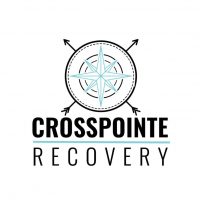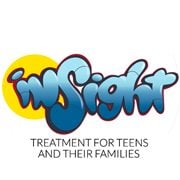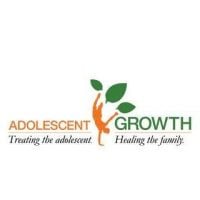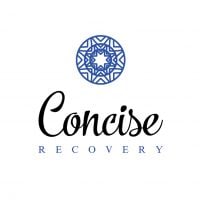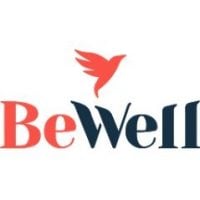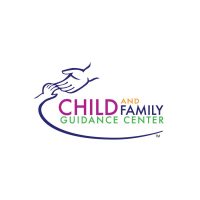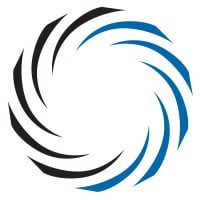Crosspointe Recovery
Drug Rehab Center in Sherman Oaks, California
Crosspointe Recovery in Sherman Oaks, California, is an addiction treatment facility offering a comprehensive range of services and evidence-based treatments, including detoxification, inpatient, outpatient, residential, and various levels of care for individuals suffering from addiction to alcohol and drugs such as opioids, as well as dual diagnosis, all provided with tailored treatment plans and the highest standards of care.
About This California Facility
Crosspointe Recovery, nestled in Sherman Oaks, California, specializes in drug and alcohol addiction treatment with an emphasis on a compassionate, luxury experience. Accredited by CARF, its mission is to support recovery through a blend of experienced medical care and luxury amenities, ensuring a unique, nurturing journey towards sobriety.
- Luxury Amenities: Provides a comfortable, upscale environment to support recovery.
- Dual Diagnosis Treatment: Addresses both addiction and underlying mental health issues.
- Evidence-Based Treatment: Utilizes proven methods alongside medication-assisted treatment (MAT) to ease the path to sobriety.
With accreditations from CARF and certifications by JCAHO and LegitScript, Crosspointe Recovery is distinguished by its commitment to safe, high-quality care. The facility offers a comprehensive treatment service spectrum, from medically supervised detox to personalized aftercare, underscoring its dedication to long-term recovery success.
Focusing on individuals struggling with substance use disorders, including those battling opioids and alcohol, Crosspointe employs a multitude of treatment methods. Services range from detoxification and residential care to medication-assisted treatment, all designed to foster sustainable recovery.
Genders
Ages
Modality
Additional
Accreditations

LegitScript

JCAHO
Conditions and Issues Treated
Opioid abuse has become a national epidemic in the last decade. The US has one of the world’s highest rates of opioid use and abuse, as well as opioid-related deaths. Opioids are classified as Schedule II-IV controlled substances in the US due to their high potential for abuse.
Oxycodone, hydrocodone, methadone, and fentanyl are the most common Opioids and are commonly prescribed to treat pain. Tolerance to opioids develops over time, making life difficult, if not impossible, without them. Opioid users often obtain the drugs illegally. They can be drug dealers, friends, or family members who do not have valid prescriptions.
The desire for a more intense high than prescription opioids can quickly lead to heroin use. Heroin users are more prone to illness and death due to the high risk of overdose.
Many opioid addicts who seek treatment believe that the only way to overcome their addiction is through medical detox and long-term drug addiction rehab. To help patients wean off their addiction and reduce the risk of overdose, medication-assisted therapy (MAT) involves prescribing a replacement opioid. Doctors use MAT in conjunction with other anti-craving medications to help patients maintain recovery. Due to the high risk of relapse, MAT is often combined with individual and group counseling and social support programs.
Levels of Care Offered at Crosspointe Recovery
This center offers a variety of custom treatment tailored to individual recovery. Currently available are Detox, Inpatient, Outpatient, Residential, with additional therapies available as listed below.
The detoxification process typically includes some combination of the following: medical supervision, medication to help alleviate withdrawal symptoms, drug testing to monitor progress, and counseling.
Tackling the physical symptoms of withdrawal is essential to ensure that an individual can focus on the psychological aspects of the addiction without focusing on the physical pain that comes with withdrawal.
Withdrawal symptoms can be uncomfortable, even life-threatening, so carefully managing the detox process is extremely important. In many cases, more advanced pharmaceutical interventions are used to treat more severe withdrawal symptoms. Medication might help alleviate discomfort associated with detox, including nausea and headaches.
Inpatient treatment centers offer a safe, secure, and often medically supervised environment for drug or alcohol-addicted individuals. Many of these facilities are equipped to provide detoxification, treatment for co-occurring mental health disorders, and aftercare programs. The patient typically spends 28 to 30 days at the facility and will receive extensive drug counseling.
An outpatient treatment program is set up to help with alcohol or drug addiction or a co-occurring disorder. The patient must attend the facility for their therapy and other programs but can return home each night.
The frequency of mandatory attendance decreases after much of Crosspointe Recovery‘s program is complete.
Outpatient treatment is a recovery approach that allows recovering addicts to live at home while getting rehab for addiction
An outpatient can include day treatments which include attending group sessions one hour per week. A person living in an outpatient environment may be allowed the opportunity to work full time if they choose to and continue studies without interruption from drugs/alcohol.
Outpatient treatment is an option for people who want to maintain their careers and families. Outpatients live at home but attend treatment such as individual counseling, group counseling, or twelve-step meetings during the day.
Residential treatment programs are those that offer housing and meals in addition to substance abuse treatment. Rehab facilities that offer residential treatment allow patients to focus solely on recovery, in an environment totally separate from their lives. Some rehab centers specialize in short-term residential treatment (a few days to a week or two), while others solely provide treatment on a long-term basis (several weeks to months). Some offer both, and tailor treatment to the patient’s individual requirements.
Therapies & Programs
Family therapy is a crucial part of drug treatment and getting sober. It is one of the most effective ways to help addicts stay on the path to long-term sobriety. An addict’s family can play a vital part in helping them to avoid relapse. They can spot the warning signs and help them get back on track.
Dialectical Behavior Therapy (DBT) is a type of therapy created in the late 1980s and early 1990s. It was designed to help people with high rates of suicidal behavior.
The goal of DBT is to teach mindfulness, distress tolerance, emotion regulation, and interpersonal effectiveness to help people learn how to live a life that is no longer controlled by overwhelming emotions and urges.
DBT is beneficial in treating drug addiction because it helps patients understand and cope with their cravings for drugs or alcohol rather than turning to those substances as a way of coping.
Cognitive Behavioral Therapy (CBT) is based on the idea that how we feel, think and act all interact together. It helps people explore their thoughts for problems (or false beliefs) that influence their mood and actions. CBT is very goal-oriented, which means that the therapist and patient work together on a specific problem. In addition to helping a client focus on thoughts that can be changed, CBT also allows them to take an active role in their treatment. Our thoughts determine our feelings and behaviors; our feelings affect our thoughts, and our behaviors change our thoughts and feelings.
Payment Options Accepted
For specific insurance or payment methods please contact us.
Is your insurance accepted?
Ask an expert, call (888) 674-0062
Additional Details
Specifics, location, and helpful extra information.
Sherman Oaks, California 91403 Phone Number(888) 615-7589 Meta DetailsUpdated April 15, 2024
Staff Verified
Is Crosspointe Recovery a LegitScript Verified Treatment Facility?
According to our most recent records, we have found this center to be LegitScript verified.
Patient Reviews
There are no reviews yet. Be the first one to write one.
Sherman Oaks, California Addiction Information
More than 3 million of California's citizens are addicted to illegal drugs. Almost 800,000 people use hard drugs, almost 5 million use marijuana, and another 2.1 million abuse alcohol every year. Other substance abuse issues such as binge drinking and teen drug use are also common. Many illegal drugs such as cocaine, heroin, methamphetamine, and marijuana are smuggled into the state from Mexico.
10% of Sherman Oaks residents reported using illegal drugs in the past month. Among those aged 18-25, the rate of drug use was even higher, at 13%. Driving under the influence is one of the most common crimes in Sherman Oaks. Approximately 29% of drug users reported using prescription drugs for non-medical reasons. With partial hospitalization, you live at home but come to the treatment facility for most of the day.
Treatment in Nearby Cities
- Palo Alto, CA (307.6 mi.)
- Venice, CA (11.2 mi.)
- Westlake Village, CA (19.9 mi.)
- Simi Valley, CA (20.3 mi.)
- Saratoga, CA (294.2 mi.)
Centers near Crosspointe Recovery
The facility name, logo and brand are the property and registered trademarks of Crosspointe Recovery, and are being used for identification and informational purposes only. Use of these names, logos and brands shall not imply endorsement. RehabNow.org is not affiliated with or sponsored by Crosspointe Recovery.
